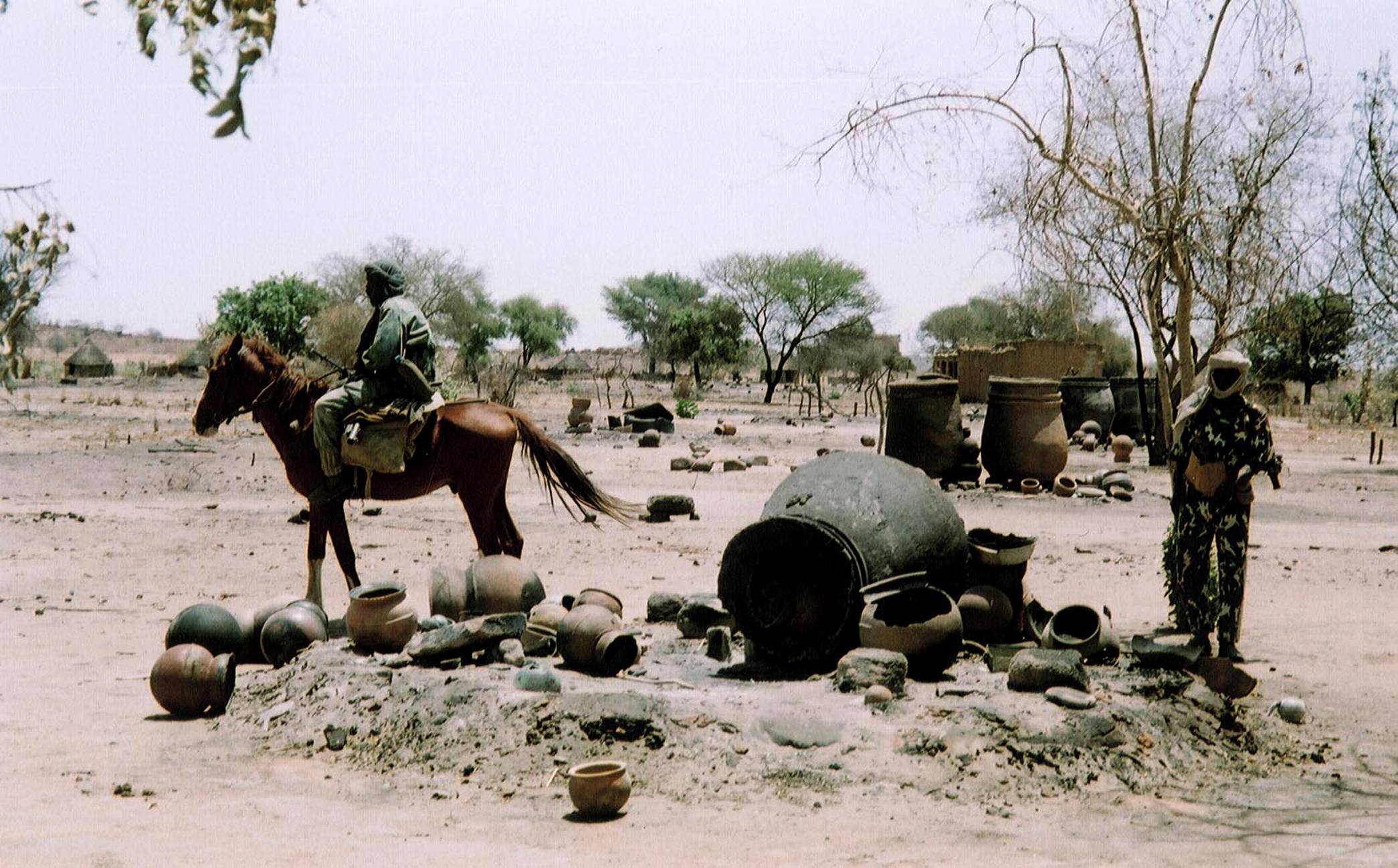Hemeti dangled an apology to his audience. He had spoken too much and would finish soon. But the answer from the crowd of Darfuri sultans was a chorus of disagreement: they wanted more from the man who has become arguably the most powerful figure in Sudan.
The one-time Janjaweed militia commander was lauded at every possible opportunity during a recent iftar event held for the sultans - tribal leaders who, unlike the Darfuri people Hemeti is accused of waging a war against on behalf of the Sudanese government, are established allies of his.
Whenever his name was mentioned during the event, it was always in full and accompanied by his title – Mohamed Hamdan Dagolo, vice president of the Transitional Military Council (TMC) – and met with ululating, as a single hoarse voice somewhere in the back barked the name of the notorious paramilitary group Hemeti leads, the Rapid Support Forces.
When he arrived at the garish banqueting hall in Khartoum hosting the dinner, the first task was a collective prayer for Sudan and a request for God to bless Hemeti.
It was all part of a charm offensive launched by a man who started out as a camel trader, became a militia leader and now, in the Sudan that has emerged after three-decade ruler Omar al-Bashir was ousted on 11 April, appears to be positioning himself as a potential leader of the country.
Remnants of the regime
Though second in command within the military council that now rules Sudan, and its only member to not come from the Sudanese army, Hemeti is also the most visible of its leaders. He appears and speaks publicly more often than the TMC's president, Abdel Fattah al-Burhan.
Throughout Ramadan, Hemeti has used iftar events held by his own supporters or soldiers to address the nation. Using elaborate camera setups broadcasting live, the general has shared his thoughts on the ongoing standoff between the council and protesters who have occupied the area outside the military headquarters for almost two months demanding a civilian government.
“He’s trying to depict himself as a man of the people, as a populist,” said Khalid Medani, associate professor of political science and Islamic studies at Montreal's McGill University.
Medani told Middle East Eye that while Hemeti’s strategic capabilities have been underestimated because of his lack of formal education, he is in fact positioning himself to preserve the system left behind by Bashir, despite protesters' demands for civilian rule.
“It wasn’t unlikely that there would emerge a figure from the previous regime who would basically try to upgrade authoritarianism by offering some semblance of civilian rule but at the same time making sure the remnants and the most important institutions of the old regime would remain,” he said.

Hemeti has spoken regularly about the ongoing negotiations between the military council and protest leaders, aimed at delivering a transitional joint military and civilian authority, but has also taken on a diplomatic role far removed from his days as a militia leader.
The military council’s social media accounts regularly show him meeting Khartoum-based ambassadors. At the iftar for Darfuri sultans, he welcomed the Saudi and US envoys. To ensure coverage, his team called Khartoum’s hotels to alert the international media of his appearances.
Last week, Hemeti flew to Saudi Arabia to meet Crown Prince Mohammed bin Salman, while Burhan visited Egypt and the United Arab Emirates. Between them, the two managed over a couple of days to meet the three nations most supportive of the military council and most despised by the protesters, who accuse them of interfering in their revolution.
Charm offensive
Since the protests began in December, Hemeti has put forward two images of himself - the champion of the protesters and the person to keep them in check - sometimes simultaneously.
On 25 December, in the first week of the protests and on the day of the first major demonstrations in Khartoum, he live-streamed on Facebook a speech given to his troops from the back of a pick-up truck in a dusty field, announcing his support for the protesters.
The reaction from the public, however, was still one of suspicion given his record in Darfur, where the RSF’s predecessor, the Janjaweed militias, were involved in a government campaign that killed at least 200,000 people, according to the UN.
The militias - primarily composed of Darfuri Arab fighters - were deployed by Khartoum to fight against rebels in the area. But the Janjaweed were accused of instead targeting civilian non-Arab tribes with executions, torture and rape. Hemeti was made leader of one of the largest Janjaweed militias in 2003, and then took command of the RSF when those militias were formalised in 2013, rising through the ranks as a reward for his loyalty to Khartoum while other Janjaweed leaders rebelled.
His forces have since been deployed against other rebellions in Sudan, including in South Kordofan and Blue Nile state, and have taken on anti-migration operations funded by the European Union - though they have also been accused of facilitating smuggling themselves.
Even after his December speech wooing the protesters, his forces were reportedly involved in crackdowns that killed dozens of protesters. Since rising to power within the TMC, Hemeti has repeatedly spoken about not accepting “chaos” from the protesters.
When protest leaders announced a general strike that has halted Sudan’s private and public sectors this week, to pressure the military into striking a deal for a new balance of powers, he warned: “Whoever strikes, by God, they should go home.”
In the same week, in an interview with Egyptian newspaper al-Ahram, he said negotiations were going well and the military council intended to hand over power as soon as possible.
“When the people’s movement reached its peak, I decided to align with it,” he told the newspaper. “The Sudanese people appreciated this position and praised the Rapid Support Forces for siding with the masses.”







